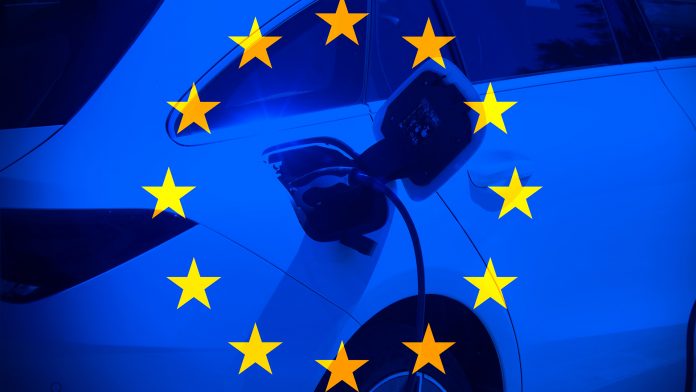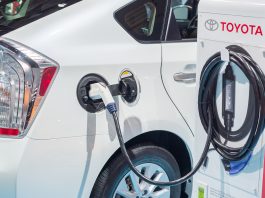The European Automobile Manufacturers’ Association (ACEA) is calling on the European Commission to make a U-turn on the proposed electric vehicle tariff between the EU and UK.
From January 2024, the EU Commission will impose a 10% electric vehicle tariff on EV exports from the EU to the UK, a controversial move that has spurred significant backlash across the industry.
Under new rules, all electric vehicle battery components and battery metals must be sourced in the EU or UK or will face a 10% tariff.
Automakers say these ‘rules of origin’ will have a substantial detrimental effect on EU electric vehicle production, costing the industry billions and putting a barrier between exporting to the UK – the EU’s largest trading partner.
Rules of origin explained
Goods that are exported under the terms of the EU free-trade agreements (FTAs) must comply with rules of origin to qualify for tariff preferences.
Currently, the rules of origin for vehicles are either 40 or 45% of non-originating content (NOM), with the UK currently exempt from this rule. It is estimated that compliance with these rules is currently 99%.
As a traditional electric vehicle’s battery accounts for around 30-50% of the vehicle, if the battery does not fully originate in the EU, it is incredibly difficult for manufacturers and exporters to meet these rules.
However, from January 2024 to the end of 2026, a second transitional period will impose more restrictive rules.
These will require that all battery parts and certain materials originate in the EU, with compliance expected to be only 10% in 2024.
How will the electric vehicle tariff impact the industry?
ACEA estimates that if the Commission follows through with the 10% electric vehicle tariff, it could cost EU manufacturers around €4.3bn over the next three years.
This could reduce electric vehicle production by 480,000 units – the equivalent output of two auto factories, a significant blow to the industry.
Speaking on the electric vehicle tariff, Luca de Meo, ACEA President and CEO of Renault Group, said: “Driving up consumer prices of European electric vehicles, at the very time when we need to fight for market share in the face of fierce international competition, is not the right move – neither from a business nor an environmental perspective.
“We will effectively be handing a chunk of the market to global manufacturers. Europe should be supporting its industry in the net-zero transition as other regions do – not hindering it.
“There is a very simple and straightforward solution: extend the current phase-in period for battery rules by three years. We urge the Commission to do the right thing.”









